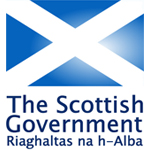A consistent, victim-centred approach to hate crime
Victim Support Scotland (VSS) recently responded to the Scottish Government’s consultation on hate crime.

The consultation considered, among other things, an expansion of the statutory aggravations (currently race, religion, sexual orientation, transgender identity and disability). Statutory aggravations are applied where a crime is motivated by a victim’s personal characteristics which may increase the severity of the accused’s sentence.
VSS is primarily concerned with how we can foster a victim-centred approach to understanding and addressing hate crime in all its forms. Our vision is to ensure victims are kept at the forefront of all discussions.
We support a consistent approach to hate crime to ensure the suite of laws covering hate crime offences in Scotland is fit for purpose and provides the most effective approach to deal with the issue.
This is why, in our consultation response, we have backed Lord Bracadale’s Independent Review Proposals, recommending baseline offences and an extension of the statutory aggravations to include age and gender.
We believe a streamlined approach will be more easily understood by victims and our support staff and volunteers.
VSS Policy Officer Kevin Kane said:
“It is our view that the clearest and most effective way to single out hate crime is a method involving baseline offences and statutory aggravations reflecting identity hostility.
“It is however worth recognising that some of the most vulnerable victims of hate crime are excluded from existing policy and legislative frameworks.
“Whilst we view the current thinking on the new proposed statutory aggravations on gender and age as positive, this should be viewed as part of journey towards a more victim centred approach to tackling prejudice and discrimination in all its forms”.
Our full response to the Scottish Government Consultation can be found here.
The consultation closed on Sunday the 24th of February, 2019 and we will post the results when they are published in the summer.











